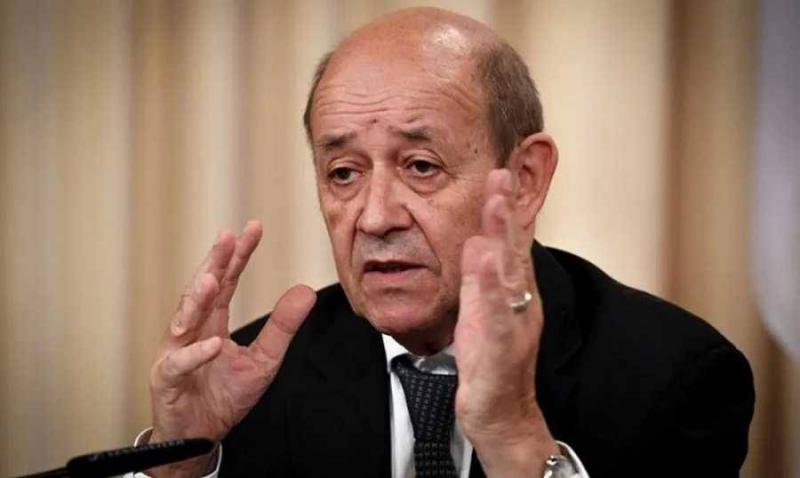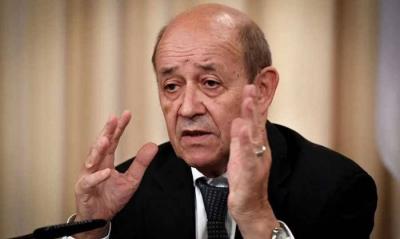Days before the arrival of French envoy Jean-Yves Le Drian in Beirut, aimed at energizing contacts to achieve the election of a president of the republic and end the presidential void, there were leaks about the progress of a dialogue option among Lebanese factions in one of the capitals of the countries making up the Quintet Committee, with Paris being favored as the host for the meetings. It appears that Le Drian will attempt to secure the approval of the Lebanese factions for a meeting in the French capital or another location, seeking to discuss the presidency file and other issues, including the comprehensive agenda related to the new term.
The French envoy comes with a likely call for dialogue and consultation, a demand that has long been made by Speaker of the Parliament Nabih Berri, but rejected by many factions outside the duo, particularly the Christians, in order not to entrench a norm prior to the constitutional presidential election.
Sources close to the Quintet Committee confirmed to "Anbaa" the existence of a window of hope that the committee relies on in its efforts to elect a president of the republic with international support granted to it, without being tied to a specific timeframe as diplomatic efforts are not limited by time or place. The sources emphasized that the Quintet's meetings with Lebanese political forces will continue, feeling that everyone wants to cooperate and elect a president, despite the differences in viewpoints that are being slowly reconciled and require increased pressure to soften some positions and bring views closer to a national perspective.
The sources considered that discussing the election of a president by setting deadlines lacks accuracy as it contradicts the spirit of the constitution. They added that what is officially issued by the relevant authorities regarding the election is the official position, and anything else is conjecture, analyses, opinions, and inaccurate information based on incomplete dialogue data. They pointed out that the presidential election has gone through many important phases and forecasts with deadlines without achieving election due to difficulties in consultations and the interference of some active parties aiming to achieve political gains.
A parliamentary source following up with "Anbaa" said: There will be no election of a president of the republic without dialogue, whether it takes place in Lebanon or in any other country, as happened previously in a similar entitlement. What the Quintet is doing in Lebanon is indirect dialogue among the Lebanese parties to reach the first step towards agreement. If the Quintet fails in Lebanon, the call for direct dialogue is likely, potentially held in one of the Quintet countries, especially since Saudi Arabia has previously witnessed a Lebanese national dialogue that resulted in the document of national accord in Taif, followed by the election of two presidents, Rene Mouawad and then Elias Hrawi after Mouawad's assassination. Years later, Doha hosted a dialogue among conflicting political forces, followed by the election of General Michel Sleiman as president and the formation of a national unity government that was both inclusive and effective.
Today, matters seem to be moving towards an external dialogue in one of the Quintet countries. The source revealed that there are no reforms in Lebanon without a president of the republic and a government that does everything within its capacity to manage the affairs of the people and state institutions that need to activate their administrations under a comprehensive plan with the president of the republic, the prime minister, and a government that gains the confidence of the parliament.
The current dysfunction in state functions is due to the imbalance between the components of the state, which are protected by the National Accord Document, which includes the positions of the three presidencies in Lebanon and their roles. Between the French urgency for the election of a president of the republic and separating Lebanon from the Gaza war, and the American hesitation, it seems that matters are turning in a vicious circle, with dwindling chances of making a breakthrough in the scene, turning it into difficult if not impossible.
In this context, one of the deputies who met with US envoy Amos Hochstein in Washington told "Anbaa": Hochstein was certain and spoke with confidence that the Gaza war is long and there is no horizon for its resolution. He stated that at the same time there is no possibility of separating the Lebanese border file from it, and thus the end of this chapter of the long war will determine many of the outlines built upon, making it pointless to take steps seen as hasty.
Regarding the French move, a source told "Anbaa": France places the continuation of Lebanon at the forefront of its concerns. This interest has greatly emerged since the era of the late President Jacques Chirac. Now President Macron is moving towards Lebanon. He has visited Lebanon several times and held meetings with various Lebanese leaders, whether individually or in joint meetings for all parties, as occurred at the Pine Palace.
The source added that Macron is waiting for Le Drian's move and what he brings, stemming from his concern for Lebanon's role. Generally, his moves encounter the American offsets for the overall process in the region.
On the ground, confrontations have increased on the southern Lebanese border with the continuation of mutual threats from both sides of the border. An airstrike resulted in the death of two Hezbollah members in the town of Maiss El Jabal. Meanwhile, the party indicated the use of new missiles and that it is developing its military means according to the requirements of the field.




